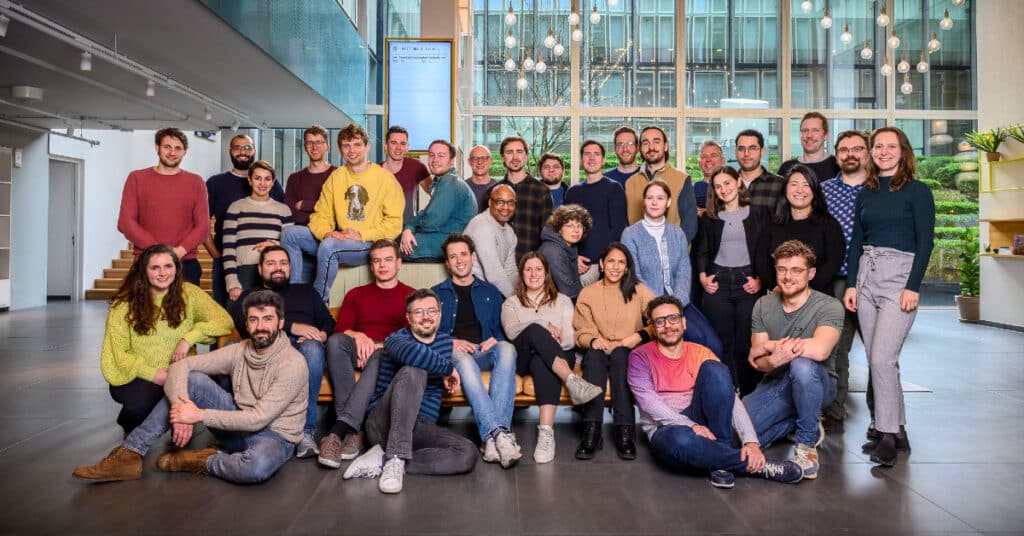Amsterdam-based Dexter Energy, a provider of AI-based power generation forecasting and trade optimisation solutions, announced on Tuesday that it has raised €10.5M in a Series B round of funding.
This round was led by ETF Partners and Astelia with participation from existing investors Newion, PDENH, and Rockstart.
Fund utilisation
Dexter Energy says it plans to use the capital to fast-track its product roadmap and assemble its services into a complete, self-serve cockpit.
This will enable its customers to balance their renewables portfolio, optimise their trading strategies, and minimise balancing costs.
To further support the expansion to new European markets, Dexter Energy aims to double the size of the team to 80 people by the end of this year.
“We are very happy to welcome ETF Partners aboard who share our vision that AI is a crucial element in the energy transition toward a fully carbon-free power system,” says Luuk Veeken, CEO and founder of Dexter Energy.
“We value their entrepreneurial mindset and ongoing leadership in sustainable investment. We see them as a fantastic sparring partner and we are confident they will help guide the growth of our company in the best possible direction,” says Veeken.
The funding announcement comes two years after raising €2M in a Series A funding round led by Newion.
What does Dexter Energy solve?
The world is going through a major energy transformation where renewable energy sources are becoming more prevalent and dominating the electricity market.
This shift is causing significant changes in the way energy companies trade and balance power, leading to an increase in balancing costs by a whopping 60% in 2022 and amounting to €20B in Europe alone.
Previously, a select number of fossil fuel plants were responsible for providing electricity on demand.
However, with the rise of renewable energy sources, a significant portion of the energy is now generated by intermittent sources such as wind and solar.
As a result, power now flows when the sun is shining or wind is blowing, which is disrupting the energy trading and balancing activities of companies.
This disruption is expected to continue as the percentage of wind and solar electricity supply in Europe is set to grow from 22 per cent in 2022 to 65 per cent in 2030.
Balancing costs are predicted to skyrocket as a result, which could have significant implications for energy companies and consumers alike.
Here’s where Amsterdam’s Dexter Energy addresses the issue through machine learning.

Renewable power generation forecasting
Founded in 2017, Dexter Energy leverages advanced machine learning algorithms and big data analytics to help energy companies manage their short-term trading activities for a 100 per cent renewable energy portfolio.
The company’s algorithms analyse large amounts of data, including historical energy consumption patterns, weather forecasts, and market prices.
By doing so, they can accurately predict short-term energy demand and supply, which helps energy companies optimise their energy portfolios and reduce their balancing costs.
The Investors
ETF Partners supports talented entrepreneurs and management teams with investment capital and experience.
“We believe that Dexter Energy has created a category-defining solution that is going to transform how companies forecast and manage their energy generation and the way they trade,” says Remy de Tonnac, Partner at ETF Partners.
“It is inspiring to join and support a purpose-driven team and to actively contribute to reducing
emissions and eliminating millions of tons of CO2 through the Dexter smart approach that solves imbalances in the grid,” adds Tonnac.
Based in Amsterdam, Newion focuses on European business-to-business software startups and scale-ups with global ambition.
“Newion feels privileged to be part of this journey,” says Patrick Polak, Co-founder and Managing Partner of Newion.
“We think that Dexter Energy’s extremely talented team, with the help of its supportive investors, has the opportunity to disrupt a market that is full transformation,” concludes Polak.










01
From telecom veteran to Dutch Startup Visa success: The Jignesh Dave story